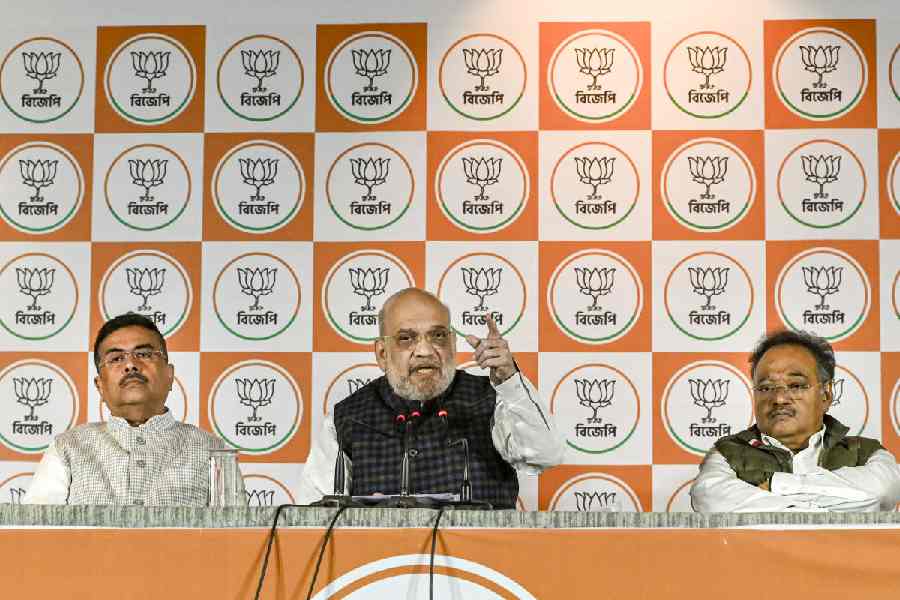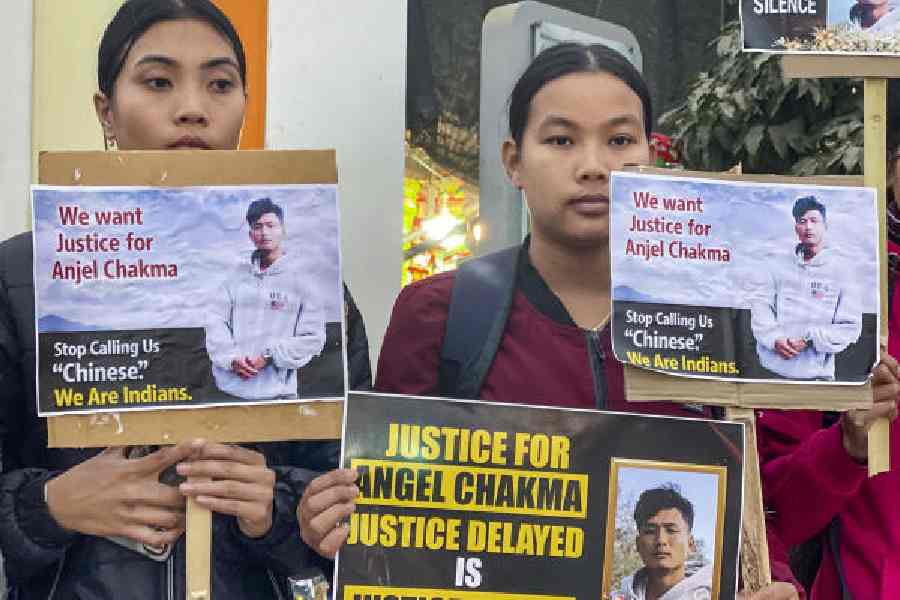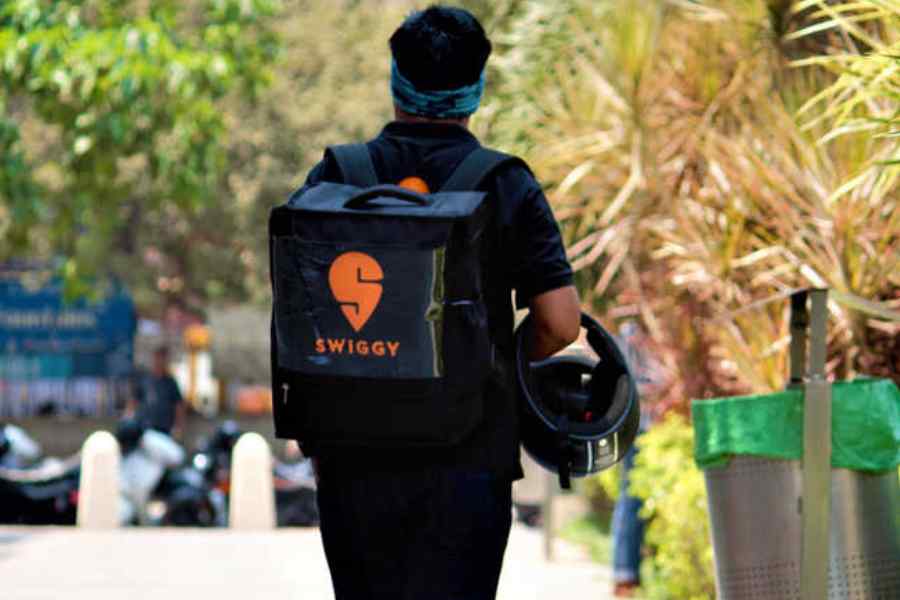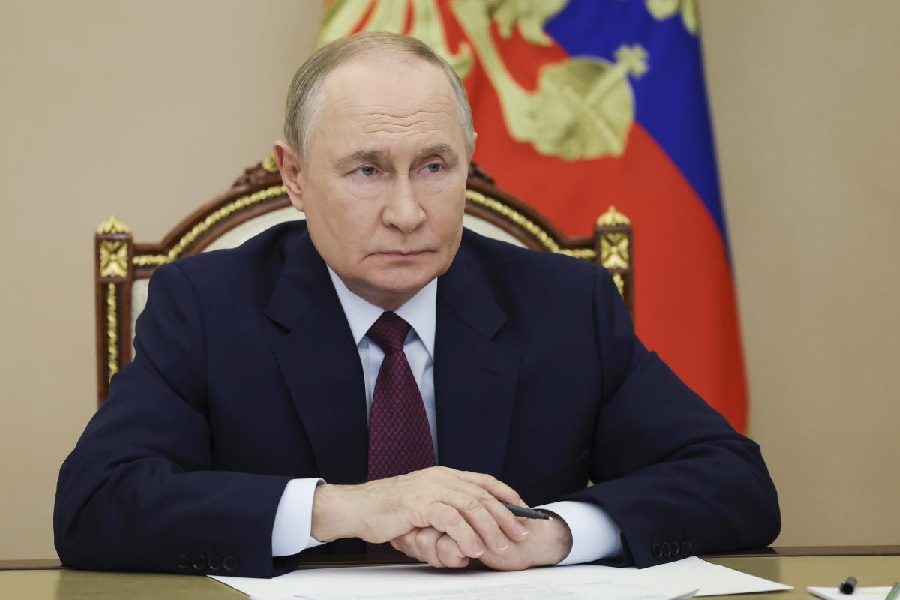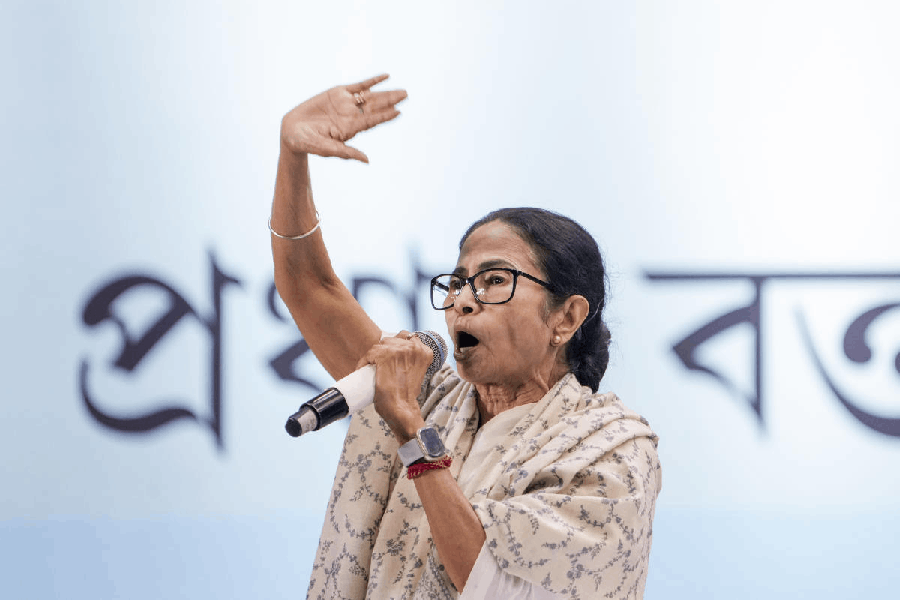.jpg)
Deepa Das Munshi looks a little annoyed. She arrived at 9am at Manasatala, off Kidderpore bridge, in full campaign gear: white handloom sari with a red-magenta border, sneakers, trademark big bindi and chunky silver jewellery, on the last Sunday of campaigning before the area votes on April 30. But not her people.
When they do, it is well past 9.30am. It amounts to a mix of local, elderly Congress leaders and Left Front activists, the " jot". After Shamima Khan of Forward Bloc, councillor of ward 77, where Manasatala is located, finally reaches, Deepa's street campaign begins.
Wife of veteran Congress leader Priya Ranjan Das Munshi, and therefore "Boudi", Deepa is taking on the most famous personality of Bengal of the moment, Mamata Banerjee, aka Didi, in Bhowanipore Assembly seat, Didi's home. It is like trying to beard the lion in its den. Plus, "things are a little disorganised," as a local CPM leader agrees, slightly apologetic.
It is not clear if Deepa, who is in the Congress, will lead the ballot battle.
Bhowanipore is Didi's seat. But this election is only the latest episode in the Didi-Boudi rivalry, which goes back a long way.
Deepa, a minister of state for urban development in the last UPA government, may still be smarting from her loss of the Raiganj seat in the 2014 Lok Sabha elections, to Mohammad Salim of the CPM by a margin of 1,000-odd votes, because a chunk of the Congress votes went to the Trinamul candidate, another Das Munshi - Priya Ranjan's brother.
Deepa had also fought hard, among other things, to bring an AIIMS to her constituency Raiganj, but it went to Kalyani.
Their manner and appearance also keep them poles apart. Boudi does not raise her voice - "the language Didi speaks is not Bengali," says Deepa.
Nor does Boudi compromise on the colour, range or flamboyance of her fine handloom saris, even as the chief minister sticks resolutely to white.
Deepa has nothing to lose now and she is making the best of it.
But no road in Calcutta is smooth. After a quick round of the Kidderpore market, the procession meets at Panchbabur Dokan to begin their campaign in Manasatala, the middle-class Hindu residential area of ward 77. The votes are assured here, the CPM activist says.
Deepa walks briskly through the lanes that are typical of Bhowanipore: old houses, some crumbling, punctuated by multi-storeyed buildings. A few stops at houses, then a general address to the para on the loudspeaker.
Boudi takes Didi head-on, making an impassioned plea. "The last five years have seen crimes against women. No industry has come. That's why Didi wants to promote telebhaja as an industry. She has funded para clubs to spread terror in localities."
She is interrupted rudely. The mike is grabbed by the Forward Bloc councillor, who asks the people to vote for the Congress-Left alliance.
"You should have told me before (that the councillor wanted to speak)," Deepa says, and resumes when she gets the mike back again, but she is a bit less impassioned.
"After the Narada sting, Didi is now saying in the morning that she wouldn't have given tickets to the dadas if she had known. By evening she is saying that that was a slip of the tongue," says Deepa.
Another attack on Didi follows at the next street corner address, back at Panchubabur Dokan. "Terror, looting, rape... calling rape sajano ghatana (a contrived event) Mamata Banerjee used the phrase to describe an incident of rape in Katwa in February 2012)," Deepa says, standing on the platform built around a tree, with the councillor next to her.
Water is the problem in this ward.
"Right in front of the chief minister's house people are queuing up for water for two hours two times a day, to get water for only five minutes. Instead of building amphitheatre-like stadiums, why can't she build a water tank like Tullah in the southern part of the city?" Deepa demands.
"West Bengal is not only the Bengal of Rabindranath, Gandhiji, Netaji. It is waiting for another future, of the Internet, of progress," she says.
She reminds that she is the wife of Priya Ranjan Das Munshi, who is ill and not been able to speak for seven years. She takes care to point out her local connections: she grew up in Bhowanipore and studied at Sakhawat Memorial School, she says. She went to Rabindra Bharati University, where she stood "first class first". (Her discipline was dramatics.)
Educational qualifications are a sensitive spot with Didi. When she contested the Lok Sabha polls against Jadavpur University professor Malini Bhattacharya, a doctorate-degree holder, Mamata had claimed she held a PhD awarded by an American university whose very existence was under a cloud.
"Do not vote for this government," cries Deepa. "If Didi can say what she said in the morning was a slip of her tongue, why don't the votes also slip out of the hands of Bhowanipore voters and go somewhere else?"
"Didir paye Hawaii choti, bhaiyera holo kotipati (Didi wears Hawaii chappals. Her brothers make crores)," shout her boys.
Next stop: Biskitgalli. This part of the ward is Muslim-dominated and much poorer, more Kidderpore than Bhowanipore - and Boudi's campaign managers are less certain here.
Biskitgalli is really a tiny square, where a fish seller still sits with unsold parts of fish with the water mixed with blood spreading around him as the afternoon sun rises overhead. Around the square arise numerous multi-floor buildings with cramped, mostly one-roomed tenements inside that seem to open up in unlimited numbers along narrow open drains or corridors and trapped cooking smells.
Each building seems to heave, with so many rooms pressed in, where water is stored any which way, where families, often large, just live together on the one large bed that fills up the room. Water is very scarce here.
A middle-aged woman rages. "We will never get water. No one comes back after the vote," she screams.
Deepa takes care to get into the lanes, into the houses, and ask humbly for votes. She is one up on Banerjee here: till Sunday, the chief minister had not come, even to ask for votes.
Madan 'influence'
Deepa today complained to the Election Commission that Madan Mitra might "influence" voters from inside the SSKM Hospital when Bhowanipore goes to polls on Saturday. Mitra, arrested in connection with the Saradha scam, was shifted from Alipore correctional home to SSKM on Tuesday after he complained of chest pain and breathing problems.

.jpg)
